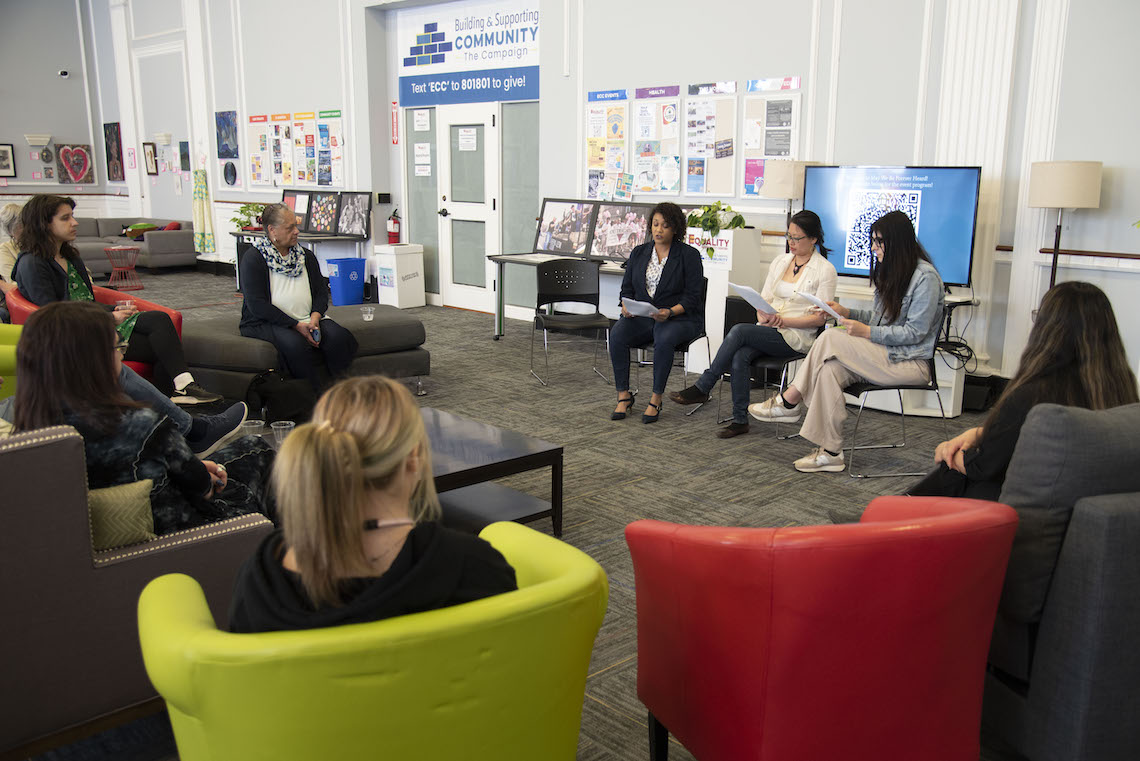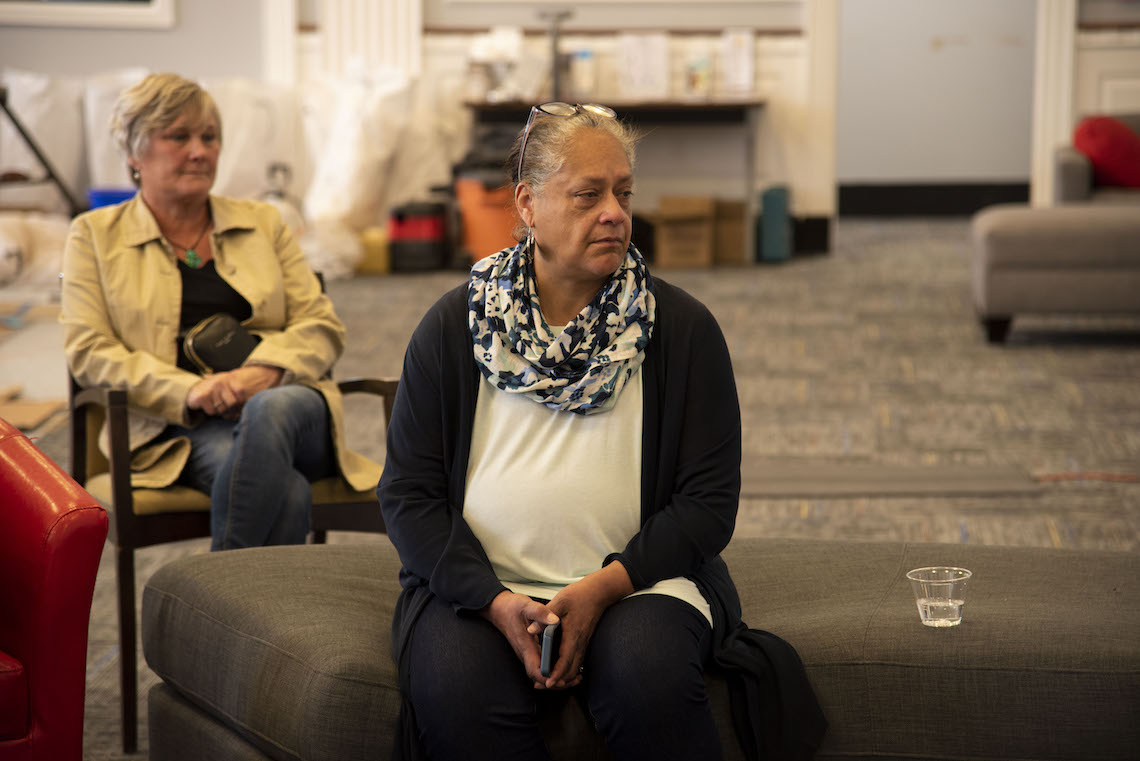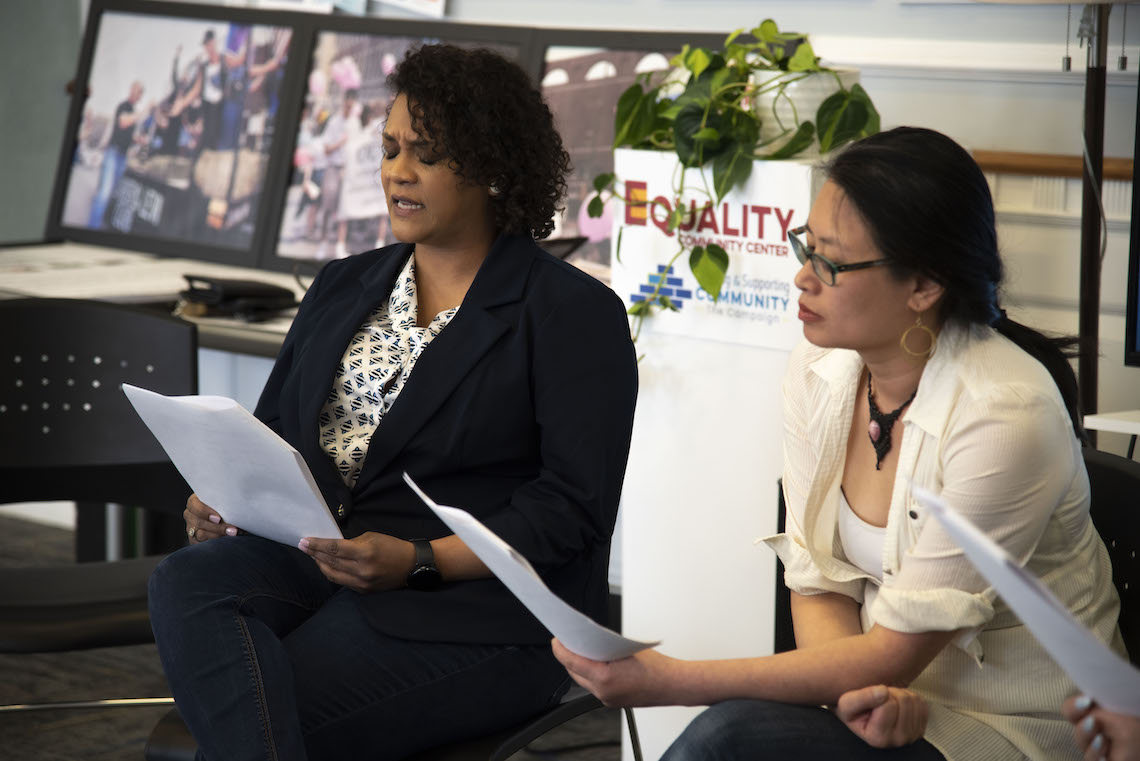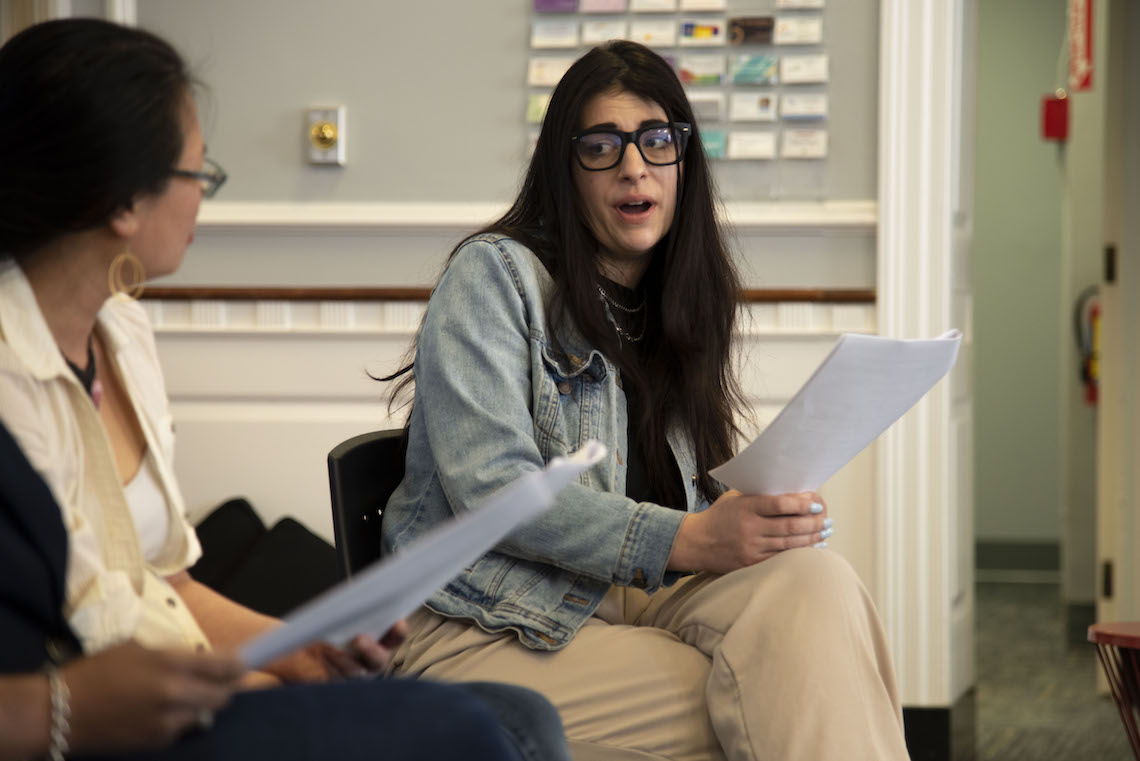
There was no stage. No costumes. No dramatic lighting. But even stripped of those theatrical trappings, a playwright’s words still held the power to help people cope with the trauma of sexual assault.
The event was called May We Be Forever Heard: Ethical Storytelling Honoring Victims of Sexual Assault. It took place at the Equality Community Center in Portland on April 15. Robin Talbot was a key organizer. Her goal was to get more people involved in recognizing April as Sexual Assault Awareness Month.
“I hope that there’s a level of empathy, a better understanding of the issue and that people are educated, that we as a community are better educated through storytelling,” said Talbot.

Storytelling is Talbot’s field of expertise as Associate Director of Stonecoast MFA at the University of Southern Maine. The program helps aspiring writers nurture their talent by learning from successful authors. Talbot drew on the Stonecoast model in her planning of the event.
The event began with a dramatic reading of selections from “The Last Girl,” a three-act play written by Dianne “dee” Clarke about her experiences with homelessness and sex trafficking. Her writing grew out of her activism around those issues. Much of the play’s dialogue is based on the testimony she delivered to the Maine Human Rights Commission in 2014.
Clarke was a leader in the political push to change the way that sex workers are recognized by Maine law, from criminals to victims of a crime. She invited other people who lived through sex trafficking to join her crusade for social change by founding the organization Survivor Speak USA.
Clarke’s play was still in the planning phase when she died in 2021 at the age of 64. To keep her message alive, her supporters continued to fine tune the production with funding from Portland Ovations. “The Last Girl” premiered last October at the Westbrook Performing Arts Center.
Three of the performers from that production returned for the Ethical Storytelling event and the chance to reach a new audience. The presentation was casual, with the performers seated almost within arm’s reach of their listeners. But the emotion behind the readings was anything but casual, as performed by Felicia McLeod.

“I came from a similar background of the story. I grew up in foster care,” McLeod said. “Any way that I can always educate people or give back or volunteer or be part of a greater movement to end this, I will always be there.”
That deep connection to the material was a common thread among the play’s cast. Lynn Teo hadn’t performed publicly for 20 years before accepting a role in “The Last Girl.” She felt compelled to participate by the importance of the message. Months after the show’s premiere, that feeling remained just as strong at the Ethical Storytelling reading.
“We’re trying to co-create a culture of belonging and that means not dehumanizing people who have gone through some of these horrific experiences and trauma,” Teo said.
Good intentions alone aren’t enough to enact change. Clarke took her message to lawmakers and won their support to change public policy. Her story is a road map for other activists to follow her example by engaging with political leaders to use their power to better serve people in need.
The power of Clarke’s words is tied to her willingness to share the pain of her journey. Several listeners dabbed at their eyes as the readings unfolded. But beyond the tears was a promise that pain can be overcome and that it’s possible to find peace again.

“It might educate the next person to then say, ‘I can tell my own story. I can be forthcoming in my experience and I don’t have to be shamed in that experience. I don’t have to be fearful. I can go out there and say this is who I am. This is part of my story,’” Talbot said.
After a round of applause, the readings gave way to a panel discussion with Lucy McCray and Tricia Grant. McCray fights sexual exploitation of children in Thailand as president of The Freedom Story. Grant is program director of Sophia’s House in Lewiston, which provides shelter to survivors of human trafficking.
The audience’s positive reaction to both the panel and the readings encouraged Talbot to turn the one-time event into an ongoing series. The conversation around sexual violence will only change if the conversation continues. Talbot is in talks with a potential host and they’re working out the details for the next forum.

